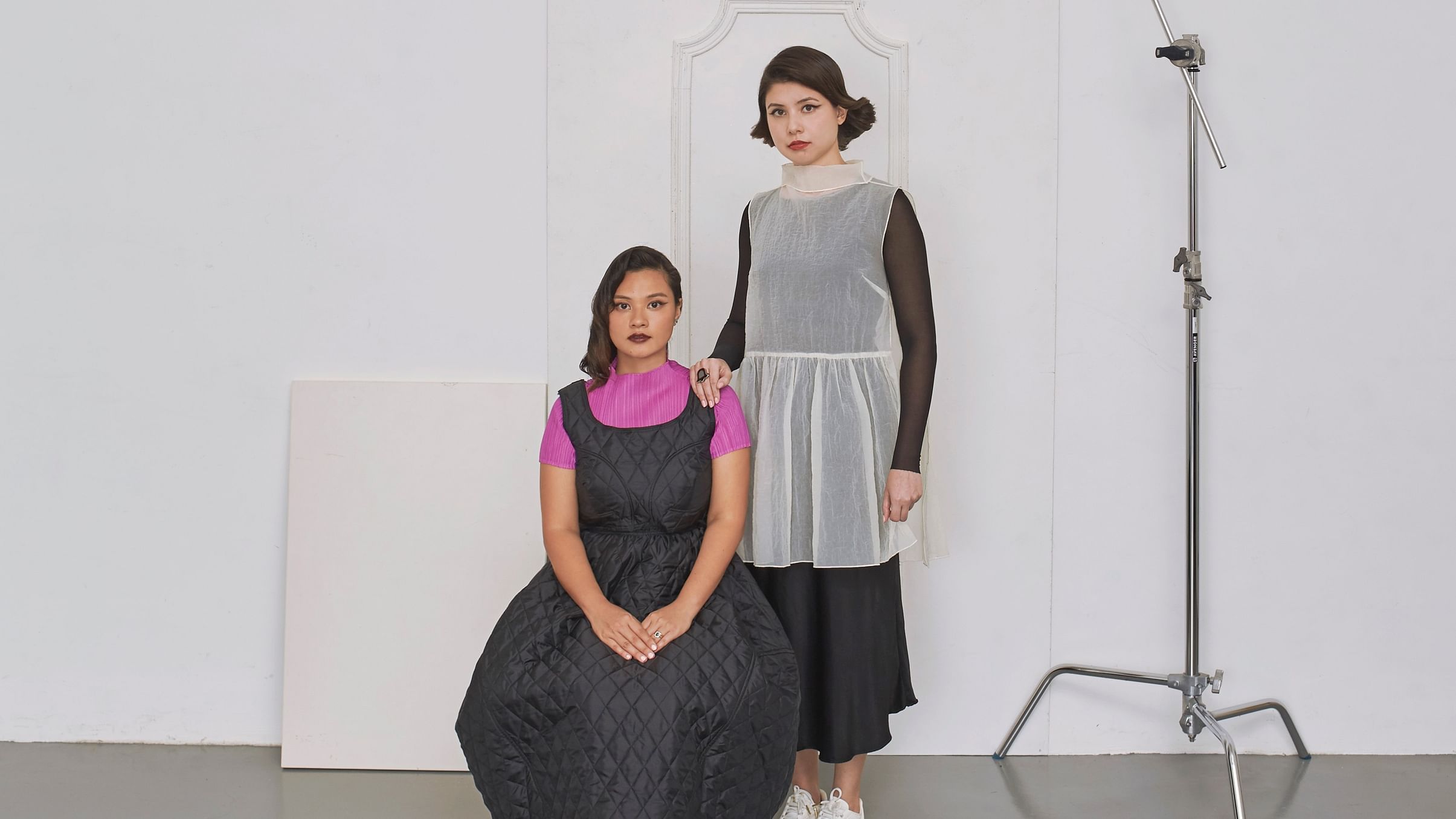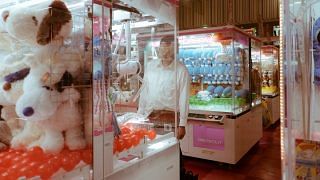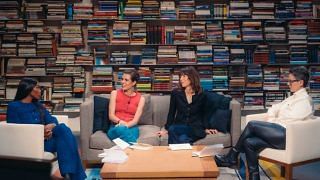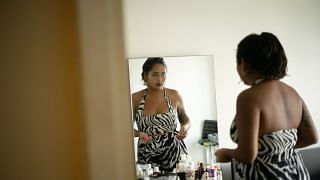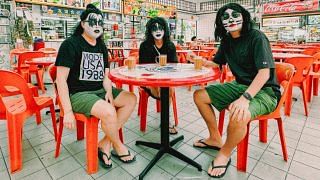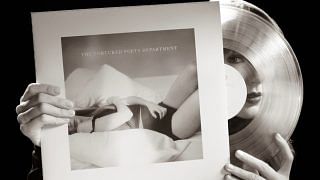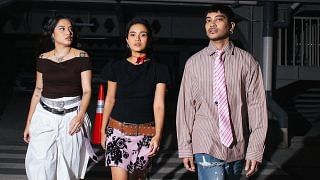By and large, fashion suffers from a bad rep as a pin-up figure – consumerism, excess and so on. With the three-month-old collective A Stubborn Bloom, founders Burt and Monasterios-Tan – both educators at Lasalle College of the Arts – hope to give it more weight and dimension. Don’t expect the typical mannequins-juxtaposed-with-cultural-artefacts sort of fashion exhibition at their debut, yet-to-be-named show launching at Gillman Barracks in April though.
Burt, for example, will reveal works similar to the abstract installations that she’s known for – whimsical mixed media sculptures that contrast delicate materials such as ribbon and lace with the industrial. Their stylish, pastel-pepped Instagram account (@a_stubborn_bloom) offers more of a peek of their inspirations: images of vintage Mary Quant paper dolls; a teenage Kirsten Dunst in Sofia Coppola’s The Virgin Suicides; the cloud-like dresses of current fashion It girl favourite Cecilie Bahnsen, to name a few – though what they’ll lead to is anyone’s guess for now.
If this all sounds bracingly conceptual, that’s the point. Coming back from her MA in fashion curation at the London College of Fashion, Monasterios-Tan explains that she returned to a vacuum of conversations about fashion theory outside of academic circles. “I’ve a strong desire to see fashion being taken seriously as a cultural product and not just a consumable. This project is a chance to test some of these ideas.”
In fact that’s exactly why the duo chose to reveal their thought process on social media in the lead-up to their big show. “Instagram is a very visual medium and a product of our culture now,” she says. “It’s the perfect medium to put together a moodboard and I feel like we are so well versed now with making visual links.”
Better known for co-founding the local, pro-upcycling fashion label Mash-up, the 31-year-old sums up the upcoming exhibition as an exploration of “how fashion can be used as a sociological tool to reflect a time or place”. “I worked a lot with fashion archives in London and I came to understand how all objects give us information about the values, aspirations and realities of their society,” she says.
“For example, a woman without a glove was once considered scandalous. I think as fast fashion and cheaply produced goods inundate our lives, material culture (any given object and its context) holds up a mirror to us and forces us to ask ourselves: what narratives do our objects create and leave for the future?” And you thought Phoebe Philo was intellectual.
This article first appeared in the January 2020 print issue of FEMALE.
Like this? Check out the female duo creating a new brand of ecotourism and the abstract artist who draws her inspiration from the likes of Balenciaga and Hermes.



